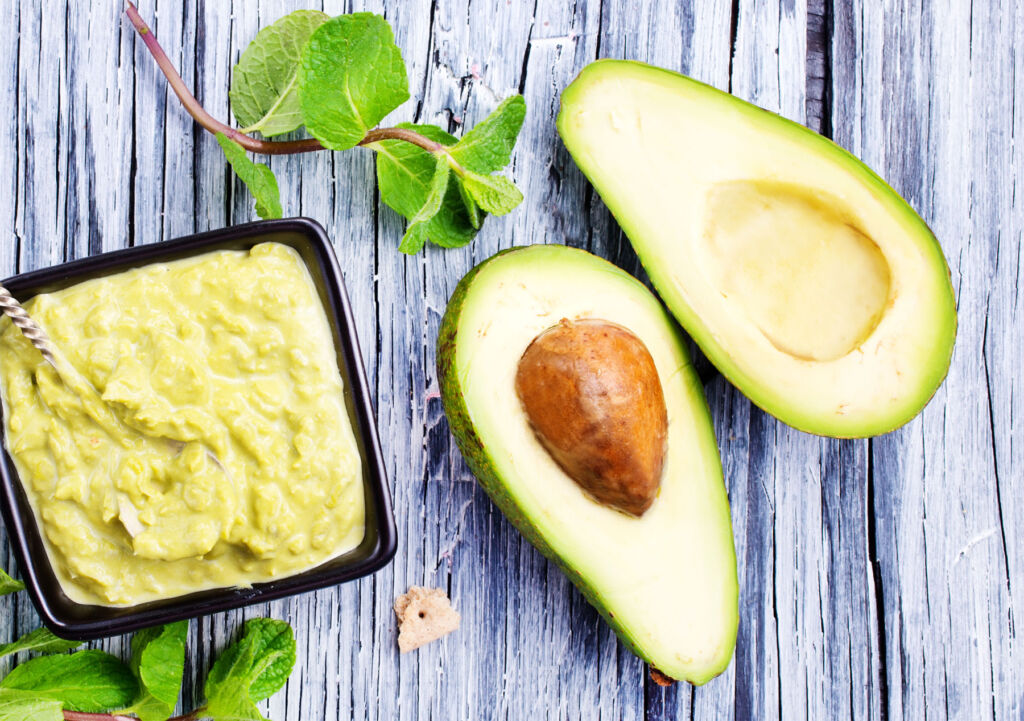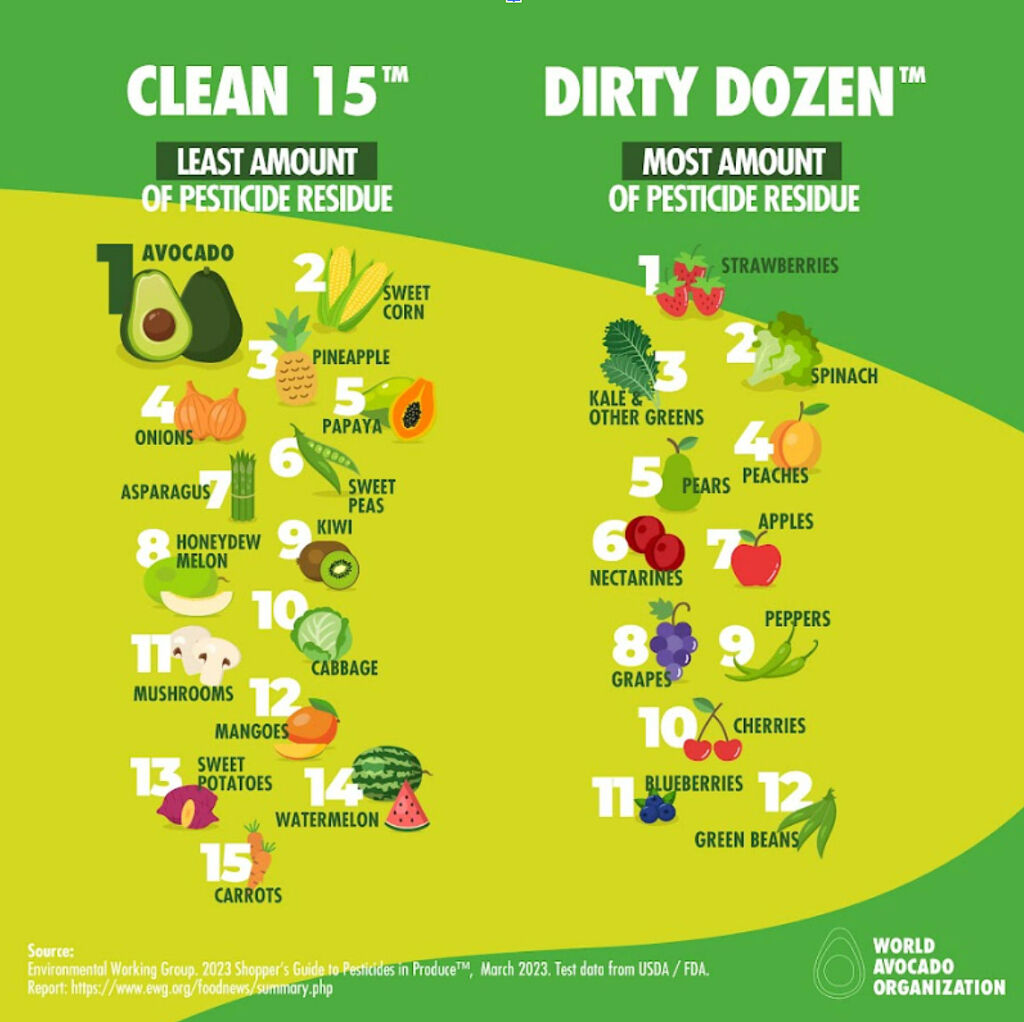

The Environmental Working Group has named Avocados as the world’s cleanest fruit. Its Clean 15 list found that the fruit’s natural defence mechanisms were brilliant when it came to restricting pesticide residue.
Scientific research shows that some harmful chemicals are able to make their way into the apparently healthy fruits and vegetables that we buy in shops and supermarkets. However, don’t despair, as not all fruits and vegetables are created equal. There are some that are able to withstand a chemical onslaught thanks to their natural makeup, and sitting atop the clean and healthy hill is the avocado.
The Clean 15 List
The Environmental Working Group’s (EWG) Shopper’s Guide to Pesticides in Produce™ contained an in-depth analysis of the most recent fruit and vegetable testing data from the Department of Agriculture and Food and Drug Administration, which included over 46,569 samples of 46 types of fruit and veg, with findings separated into two lists, the Clean 15™ and the Dirty Dozen™.


The best in class, with the lowest amounts of pesticide residue, were avocados and sweet corn, with pesticides being detected in less than 2% of the samples. Whereas 90% of the most-contaminated food samples, such as strawberries, apples, cherries, spinach, nectarines and grapes, contained residues of at least two pesticides.
Why Is the Avocado So Clean?
The fruits have a thick, protective skin that is a natural barrier against pests, significantly reducing growers’ reliance on pesticides. This inherent characteristic and responsible farming practices contribute to its exceptional standing on the Clean 15 list.
Furthermore, the recognition of avocados as a clean fruit highlights the fact that avocado farms do not necessarily need to be organically certified in order for their fruits to be “clean” and low in pesticide residue. With avocados already meeting stringent standards for pesticide residue, farmers can instead focus their resources on other sustainable practices and ensuring the overall well-being of their crops.
As a result, consumers can confidently enjoy the fruit, knowing they are consuming fruit with minimal exposure to potentially harmful chemicals.
Why should we reduce our pesticide intake?
To Stay Healthy
The European Environment Agency has recognised that the consumption of, and exposure to, pesticides can be toxic to humans and potentially linked to chronic illnesses such as cancer and heart, respiratory and neurological diseases, and can also cause developmental delays in children.
To Protect the Environment
Pesticides are not only potentially harmful to humans but also to any living organism. Even when used to target a specific pest, they can still significantly impact entire ecosystems and drive down the population of pollinators, such as bees and other winged insects and animals, which are incredibly important for all life on the planet.
Therefore, the next time you are strolling down the fruit and vegetable aisle at the supermarket, think about the positive impact that low-pesticide fruits such as avocados can have on your health and the environment around you.
About the World Avocado Organization
The World Avocado Organization is a non-profit organisation founded in 2016 whose members are avocado growers, exporters and importers from around the world – including the top four grower supplier countries to the EU and UK.
The organisation promotes the consumption of avocados based on their nutritional value and recognised health benefits. It also shares information and insights on avocado production, supply chains and sustainability with the public.
For further information, please visit https://avocadofruitoflife.com.
Read more food industry news, features and guides here.
